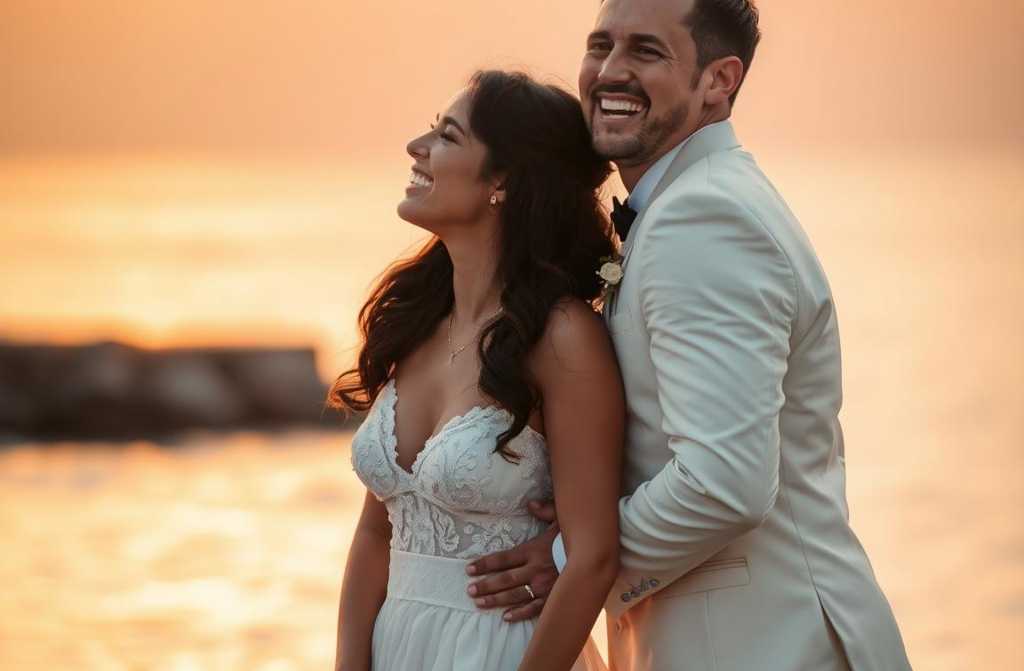*Whats Shortened Cant Be Lengthened*
When Tanya showed her wedding photos to friends, shed often sigh and say,
“Oh, how I suffered in that dress! Beautiful, yes, but so heavy and cumbersome! Next time I marry, Ill pick something light and airy.”
Everyone thought she was joking, and they laughed along. Tanya *was* jokingor so they believed. After all, shed married for love. It had been a whirlwind holiday romance: Tanya, just twenty-one, and Oliver, twenty-eight.
August by the sea, sparkling wine, starlit skiesall the ingredients for passion stirred together, ending in a hasty trip to the registry office. Of course, Oliver had to divorce his second wife first, while Tanya left everything behind to settle in his hometown. London to Brighton and back againthat route would become as familiar to her as her own reflection over the next ten years.
But first, the young couple had to find a place to live. Oliver had given his flat to his second wife, whod threatened to swallow pills, throw acid at his next bride, or leap from a window if he dared leave her. In time, though, she faded awayperhaps hed promised to return. His first wife? Oliver rarely spoke of her. That marriage had lasted barely a year before he handed her off to a friend, content to see everyone happyhimself included.
Wife number two had lasted longerthree yearsenough for Oliver to realise her true nature. A woman who scorned motherhood, calling children “little burdens.”
None of this troubled Tanya. Why should it? She was self-assured, ambitious, certain of her beauty and worth. Oliver adored her, believing hed found paradise on earth. Flowers came by the armful; fur coats arrived in triplicate; shoeswell, she couldve worn a new pair daily. He whisked her off to Paris, Rome, the Swiss Alps, broadening her horizons before the birth of their first child.
Soon, little Emily arrived. While Tanya doted on her, Oliver bought a cottage and filled it with every comfort, all for his beloved girls.
They celebrated their new home. Emily started nursery.
Tanya threw herself into studypreferably back in London, among friends, her mother, even strangers who felt kinder under familiar oaks.
Emily stayed with Olivers mother, who doted on the child. And while Tanya attended lectures, Oliver grew restless. He trailed her to London, staged absurd “chance” meetings in parks or cafésalways suspicious, always clinging. Tanya gave him no reason to worry. Or so it seemed.
Truthfully, she longed to escape domesticity. Shed study forever if it meant avoiding dishes, floors, a husbands needs, a childs demands. Life was shortwhy waste it on trivialities when she was meant for more?
Years passed. Three red diplomas sat in her handbagpsychology her chief triumph. She hunted for work eagerly, but Oliver protested:
“Dont we have enough? Ill go mad waiting for you! Tanya, lets have another childa boy or girl, I dont care. Just stay close.”
She saw no more children in her future. Her duty was done: a daughter born, a husband satisfied. What more was there? Olivers mother offered to raise Emily”until *you* grow up,” she muttered. The girl needed love, not a mother who lived in the clouds.
Tanya agreed without hesitation. She fled to London without a word, planning to call Oliver later.
But he was already there, wise to her tricks.
“Tanya, wheres Emily? Why are you here? Is there someone else?”
“Dont be silly,” she said calmly. “I just want freedom. From you. From her.”
“Freedom? Is this a midlife crisis? Well get through it”
“No, we wont.”
Oliver begged her mother for help. The woman shrugged. “Shes stubborn as stone. Youll never change her.”
He returned to Brighton alone, bewildered. After all his kindness, this? Perhaps hed never belonged in her world.
Weeks passed. Tanya never returned, though she answered his calls with icy brevity.
At last, Oliver sold the cottage, took Emily, and moved to Londonall to salvage his family.
Tanya balked. Why unsettle the girl? New school, lost friends, her grandmothers disapprovalall excuses. She revelled in her freedom now, running a dressmaking business, entertaining suitors. Why return to husband and child? That life belonged to someone else.
Oliver ignored her. Hope still flickered in him. He met Tanya after work, brought Emily (the girl her mirror image). Useless. Tanya remained unmoved, a statue. Finally, she snapped:
“Leave me be. Lets divorce. Emily can stay with me.”
But Emily was elevenhardly in need of shelter. She had a devoted father, a grandmother who prayed for her daily. She remembered her mother. Loved her. But why had she chosen to vanish?
Time flows unchecked. Life repays each as they deserve.
Oliver stopped “fishing on dry land.” Some hearts are locked forever.
Fate gave him a plain-spoken woman, feet firmly on the ground. No grand dreamsjust sturdy boots for muddy walks, a warm coat for tending livestock, and a wish to raise her two sons well. No Paris, no furs, no endless shoes.
With her, Oliver found peace. (“Where all is simple, angels dwell; where all is tangled, none fare well.”) Soon, a daughter was born. True happiness, at lastclean and quiet. His first three marriages? Best left unopened.
Tanya lives with her mother now. A business partner once promised her the moon, then swindled her dry. The dressmaking venture collapsed. Admirers scattered.
She works as a school psychologistall that study put to use. No regrets. Or so she claims. Yet souls have depths no one can fathom. Might this “bird of the air” one day feel remorse? Who can say?
Emily, grown now, married in Brightonher grandmothers home. At her wedding, she wore a light, airy dress.
A gift from her mother.







